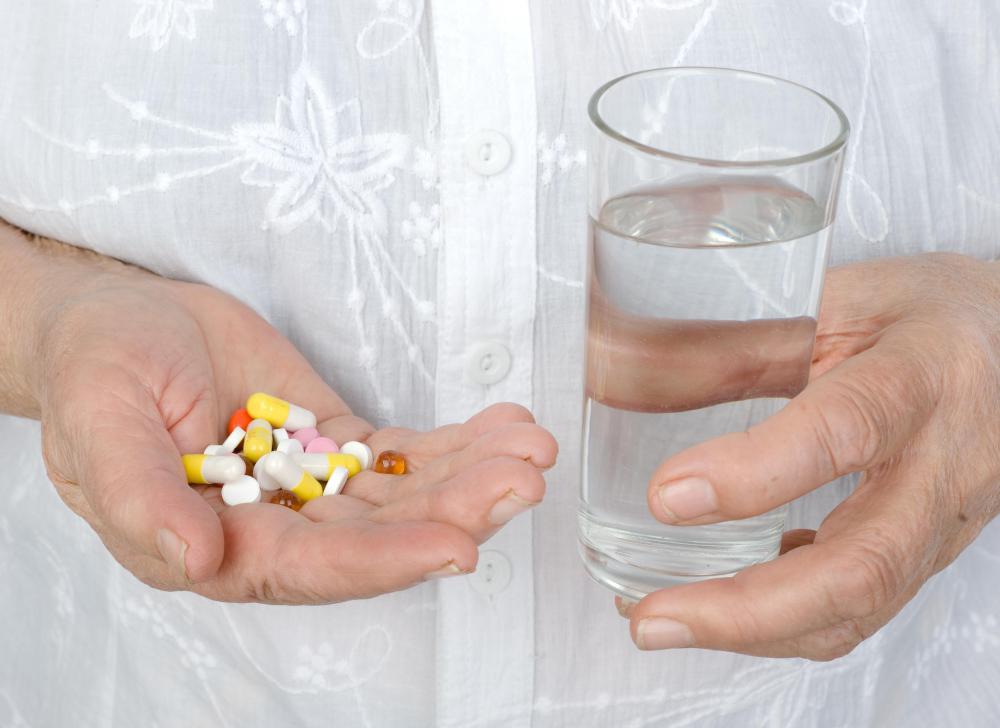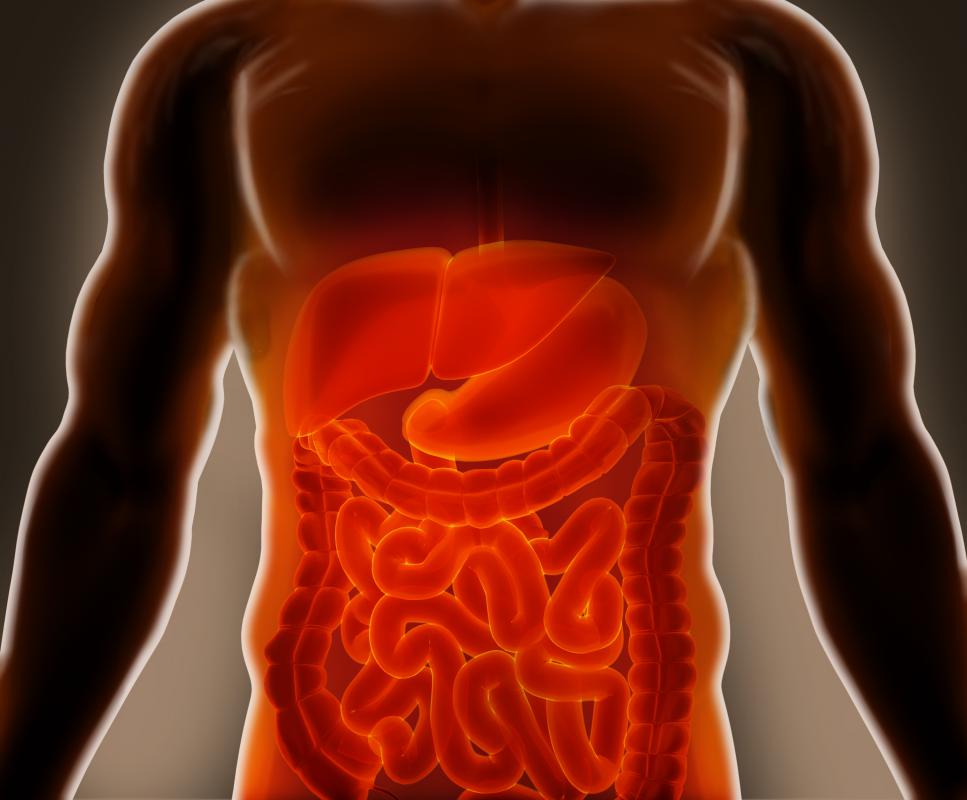At WiseGEEK, we're committed to delivering accurate, trustworthy information. Our expert-authored content is rigorously fact-checked and sourced from credible authorities. Discover how we uphold the highest standards in providing you with reliable knowledge.
What Is Acute Enteritis?
Acute enteritis is a medical term used to describe a sudden inflammation involving the small intestine. This condition can have a variety of causes, including the use of some medications, radiation therapy, or systemic illnesses such as Crohn's disease. Symptoms may include sudden abdominal pain, loss of appetite, or diarrhea. Treatment depends on the severity of the symptoms and may include replacing lost fluids, medications, or rehydration in a hospital setting. Any questions or concerns about acute enteritis on an individual basis should be discussed with a doctor or other medical professional.
In many cases, acute enteritis is caused by consuming food or water that has been contaminated by harmful bacteria. Autoimmune disorders such as irritable bowel syndrome or Crohn's disease may also cause recurring bouts of inflammation. Certain medications, including over-the-counter pain relievers such as ibuprofen or naproxen, may lead to this condition, especially if more than the recommended dosage is taken. The exact cause of the inflammation is not always known, even if diagnostic tests are performed.

Symptoms of acute enteritis usually develop quickly and disappear without treatment within a few days. In more severe cases, severe diarrhea may lead to dehydration. A stool sample may be taken in an attempt to identify the specific type of bacteria causing the illness, but this test is not always performed. Antibiotics may be useful in treating certain types of bacterial infections that may lead to the development of acute enteritis.

Most cases of acute enteritis can be treated at home and do not require any specific medical treatment. It is usually a good idea to visit a doctor, especially if severe symptoms are present, in order to make sure there are no serious underlying medical conditions that need to be addressed. Over-the-counter medications designed to treat diarrhea may be helpful during the healing process, and plenty of fluids should be consumed in order to prevent dehydration.

If severe dehydration occurs, the patient with acute enteritis may need to be treated in a hospital setting for a few days. When this occurs, a small tube known as a catheter is inserted into a vein so that fluids and any necessary medications can be delivered directly into the bloodstream. If diuretics were being used prior to the development of symptoms, they may need to be discontinued until the patient recovers. No medication changes should be made without the prior consent of a physician.
AS FEATURED ON:
AS FEATURED ON:
















Discussion Comments
I had The same few days back. I travel a lot and during travel I have to eat whatever is available result is enteritis.
The moment I drink even water I get loose bowel movements. I went to the doctor and he immediately got me admitted. My
pus cell was 15-20 hpf {stool test} and bacteria were present in stool. I was given several treatments for it.
Personal suggestions: You may eat roadside food since it is warmed during cooking, but never take a chance with tap water. Drink only bottled water. Consult a doctor immediately if you get watery motions.
@alisha-- It sounds like you're doing all that you can. Rest and dehydration is the best treatment if there is no infection or any other disorder going on.
I've had it a couple of times too and stayed back home from work and rested a lot. I sipped on water and vitamin water all day and ate comforting foods that settled my stomach. The rest is just waiting for it to resolve itself.
I haven't diagnosed as so, but the new diabetes medication I'm on has been giving me acute enteritis symptoms. I have diarrhea, excessive gas, burping, nausea and stab like pains in my stomach. When I reduce the dose, the symptoms also become less.
I've read the possible side effects and all of these are listed. I have an appointment scheduled with my doctor early next week. I'm going to try and have him change the medication. Meanwhile, the symptoms continue. I don't want to quit the medication without having a different one to take because that would mess up my blood glucose levels.
I will just have to put up with it until then. I'm drinking lots of fluids and eating foods like porridge, soup and mashed potatoes. Is there anything else I can do to help with the nausea and diarrhea?
My mom had a bad case of this the other day, I was so scared for her. She's a nurse so she knew what was going on and didn't think that a hospital visit was necessary. But she was not getting any better and seemed more dehydrated and fatigued by the hour so I finally took her to the emergency room.
She got food poisoning from meat and after about two hours of eating it, started vomiting. She had diarrhea at the same time and was feeling really dizzy. This went on for several hours. The vomiting finally stopped but I couldn't get her to drink or eat anything because she was so nauseated. And when the diarrhea still didn't stop six hours later, I knew it was time to go to the emergency room.
They gave her an IV to re-hydrate her and added anti-nausea medication and antibiotics to it to clear the infection. They also took blood to check for bacteria and it came back positive. After the IV was over, she was so much better. The doctor prescribed oral antibiotics for her to take for a couple of more days.
It's so easy to get dehydrated with acute enteritis. And you can tell because the person just looks so tired. I'm so glad I got her to the hospital in time. It could have been a lot worse if I didn't.
Post your comments